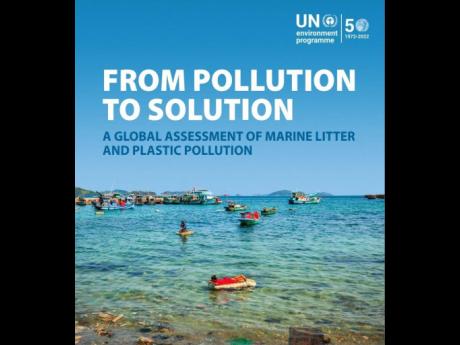Earth Today | The plastics battle is on
TRACEABILITY AND public access to information are being championed as key to the success of national and global efforts to rein in the plastics pollution.
“The traceability of plastic products across their life cycle is essential to identify areas where interventions may be needed and bring about the adoption of circular approaches,” notes the United Nations Environment Programme (UNEP) publication, From Pollution to Solution: A Global Assessment of Marine Litter and Plastic Pollution.
“In recent years, citizen science and community-led activities and organisations have come together to address these problems; examples include the brand audit of Break Free from Plastic, which looks at tackling plastic pollution across the whole value chain from extraction to disposal, and the Plastic Polluters Brand Audits of shorelines to identify major corporations whose products contribute to accumulations of plastic waste that are polluting inland waters and oceans,” the 2021 publication added.
TRACEABILITY
Traceability, the document said, is also important for keeping track of toxic chemicals added to plastics during production, in order to help reduce the loss of materials and value, and potentially achieve better environmental management of post-consumption waste.
“Delivering traceability has a long history in the food supply chain and the financial sector. It has become synonymous with the use of blockchain technologies. The plastic industry has recently begun to explore the use of these technologies to establish systems that will enable data exchanges among suppliers and producers, and provide traceability and transparency across what is today a fragmented supply chain,” the report explains.
The benefits, it said, are many. They include making it easier for suppliers, processors, manufacturers, moulders, and brand owners to choose traceable, sustainable and circular materials; and incentivising suppliers and manufacturers “to produce traceable, sustainable and circular materials and products, and provide critical life-cycle information for reverse logistics, including take-back of products, materials and components”.
According to the UNEP report, these adaptations are in sync with the new plastics economy that has as its goal, “a system in which plastic packaging never becomes waste, but can re-enter the economy as a valuable biological or technical material”.
QR CODES
“It is widely recognised that traceability and public information systems are needed, supported, for example, by QR codes that allow consumers to find out about the properties of a traced object, including any positive or negative effects with which it is associated and any certification standards. Consumers of plastic products also need to be aware of the institutional relations that activate and constrain such traceability systems, which could help them understand whether they can trust the information they receive,” it notes.
Also important are more comprehensive certification and labelling schemes.
“To date, the main such schemes for plastics have focused on recyclability. As more knowledge and research reveal post-consumption impacts, plastic traceability schemes will need to make consumers more aware of the full hazards and risks of products,” the publication says further.


